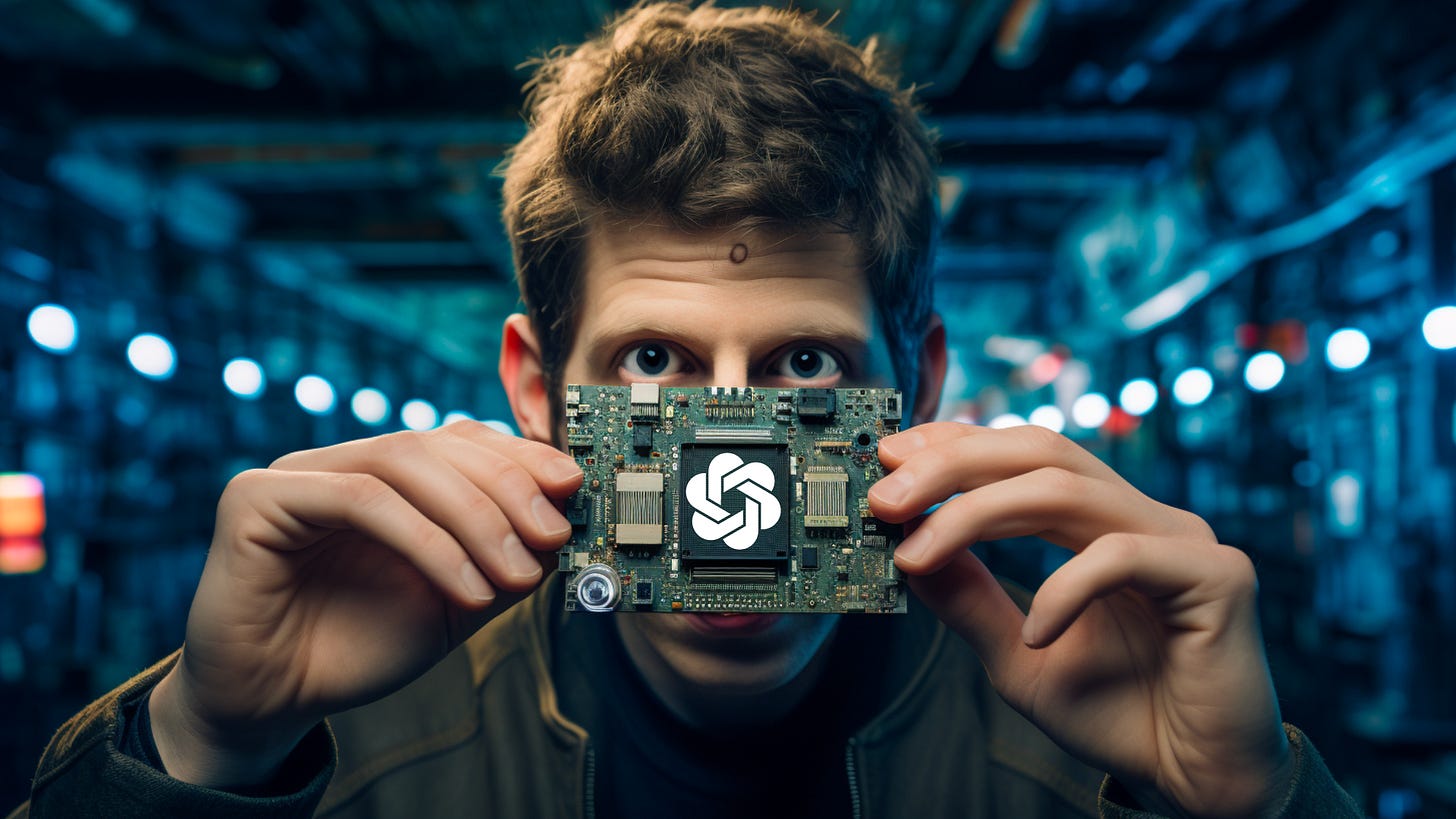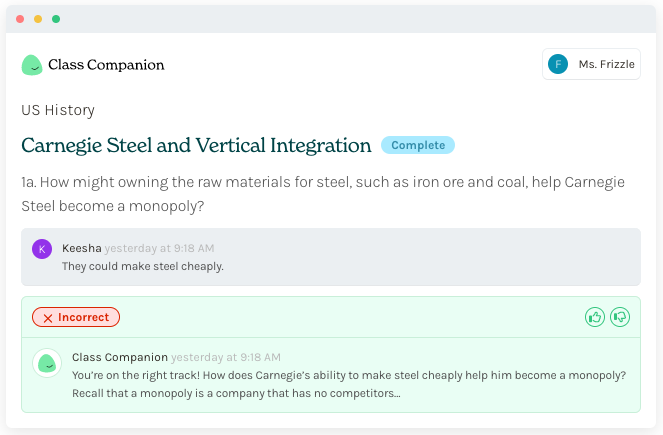OpenAI might start making its own AI chips
Plus Microsoft is debuting its own AI chips next month
Today’s Highlights:
📰 Top Stories: OpenAI is exploring the development of its own AI chips + Microsoft is debuting its own AI chips next month
👀 Content: Getty Images CEO breaks down how Generative AI is revolutionizing their business
💰 Funding: Observe raised $50M in funding to revolutionize data observability
⚡️ Quick News Hits
New breakthrough research from Anthropic unveils insights into neural network behavior, potentially enhancing AI safety, control, and reliability
Google DeepMind, along with 33 research institutes, creates Open X-Embodiment, a shared dataset for robot learning, which aims to be the ImageNet of robot actions.
MIT Tech Review survey of executives from 600 major global companies reveals how they plan to boost Data Infrastructure and AI budgets by over 25% in the next year
Intel teases "Windows refresh" for 2024, possibly tied to the release of Windows 12 with AI enhancements.
Meta paid up to $5M to celebrities like Kendall Jenner and Tom Brady for 6 hours of studio work to create AI chatbots using their likenesses.
Snapchat faces potential UK ban as watchdog investigates privacy risks tied to its AI chatbot "My AI."
Recent studies are showing AI interactions are subject to placebo effects which influence trust and perception
European AI supervision project initiated by UNESCO and the Dutch government to ensure effective implementation of the AI Act.
BBC outlines principles for using generative AI in journalism and content creation while blocking OpenAI web crawlers.
Palantir and Sparta Science collaborate to provide AI-enabled human readiness tools to U.S. government.
Princeton University launches PLI initiative w/ $10M+, to advance research in language and AI, emphasizing ethics, interdisciplinary collaboration, and public service.
📰 Top Stories
OpenAI is exploring making its own AI chips
(Source: Reuters)
TLDR: OpenAI is exploring the development of its own AI chips to address the scarcity of expensive AI chips. CEO Sam Altman has made acquiring more AI chips a top priority due to shortages and high operational costs.
The options under consideration include building its own AI chip, working closely with chipmaker Nvidia, and diversifying suppliers beyond Nvidia. OpenAI has been using a massive supercomputer with 10,000 Nvidia GPUs to develop its AI technologies.
The Big Picture: Developing custom AI chips would align OpenAI with tech giants like Google and Amazon, which design chips fundamental to their businesses. However, this endeavor would be a significant and costly strategic initiative, potentially involving hundreds of millions of dollars annually. An acquisition of a chip company is also being considered to expedite this process.
Microsoft to Debut AI Chip Next Month That Could Cut Nvidia GPU Costs
(Source: The Information)
TLDR: Microsoft is reportedly preparing to unveil its first AI-focused processor aimed at reducing its dependence on Nvidia for GPUs used in AI workloads and large language models. This chip could be revealed at the company's annual developers' conference.
The processor is designed for data center servers and AI features in Microsoft's productivity apps. It may help mitigate the risk of GPU shortages impacting AI revenue streams.
The Big Picture: The pursuit of AI innovation is driving tech giants to develop their own AI-focused processors, signaling a shift towards greater self-sufficiency and control over AI hardware components and the need to secure reliable AI infrastructure.
Google announces new generative AI search capabilities for doctors
(Source: CNBC)
TLDR: Google Cloud has introduced AI-powered search capabilities for the healthcare industry through its Vertex AI Search platform, allowing clinicians to efficiently access information from various medical records and documents.
This AI search tool helps doctors find information stored in clinical notes, scanned documents, and electronic health records, aiming to reduce the time spent on searching for relevant patient information and improve overall efficiency.
The Big Picture: The introduction of AI-powered search tools in healthcare is part of a broader trend in the industry to leverage AI for improving efficiency, reducing administrative burdens on clinicians, and ultimately enhancing patient care. As healthcare systems grapple with increasing data and documentation, AI technologies like these play a crucial role in streamlining processes and delivering better healthcare outcomes.
International Regulation News
EU negotiators are considering imposing additional constraints on large AI systems, particularly large language models like GPT-4, under the upcoming AI Act.
The EU and Japan are finding common ground in their approach to regulating generative AI. While the EU is enacting strict regulations through the AI Act, Japan is considering more flexible guidelines to promote economic growth.
Japanese Prime Minister Fumio Kishida is set to announce regulations targeting developers of generative AI. These rules aim to address the issue of misinformation generated by AI, helping the public differentiate between AI-generated content and real information.
👀 Interesting Reads and Content
Deep Dives
The Latest AI Chatbots Can Handle Text, Images and Sound. Here’s How (Scientific American)
How Nvidia Got Huge—and Almost Invincible (The Wall Street Journal)
Welcome to the AI gym staffed by virtual trainers (MIT Technology Review)
Insightful Information
Big Tech Struggles to Turn AI Hype Into Profits (The Wall Street Journal)
New tools are available to help reduce the energy that AI models devour (MIT News)
Here’s where more than half of organizations are piloting generative AI (Computer World)
Why Walmart thinks AI won’t cut jobs (Semafor)
Researchers turn to Harry Potter to make AI forget about copyrighted material (VentureBeat)
Is human uncertainty the key to improving AI? (Freethink)
Analysis and Critiques
Why free will is required for true artificial intelligence (Big Think)
AI as Your BFF? A New Wave of Chatbots Want to Get Personal With You (CNET)
Asimov’s Three Laws of Robotics, Applied to AI (Psychology Today)
Predictive Policing Software Terrible at Predicting Crimes (WIRED)
💰 Funding News
1. Observe, a SaaS observability platform specializing in storing, managing, and analyzing machine-generated data and logs using AI, raised $50M in convertible debt funding led by Sutter Hill Ventures.
2. Class Companion, an AI platform designed to empower teachers by providing instant, personalized feedback to students, raised $4M in seed funding led by Index Ventures w/ participation from the OpenAI Startup Fund and notable angels, including Gokul Rajaram, Terrence Rohan, and Andrej Karpathy.
3. Saidot, an AI governance startup offering a platform that enables enterprises and governments to harness the benefits of AI safely, raised €1.75M in a Seed Round led by Crowberry Capital and Ventic.
4. Metropolis Technologies, a company combining computer vision with AI to streamline payments and enhance consumer experiences in various sectors, including parking, raised $1.7Bn in equity and debt financing led by Eldridge and 3L Capital. They will be acquiring SP Plus Corporation for $1.5Bn.




